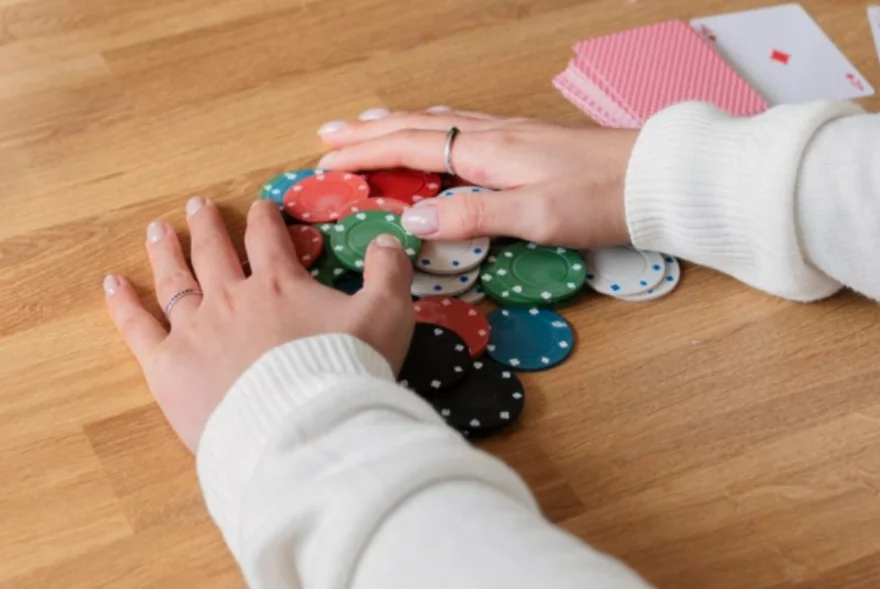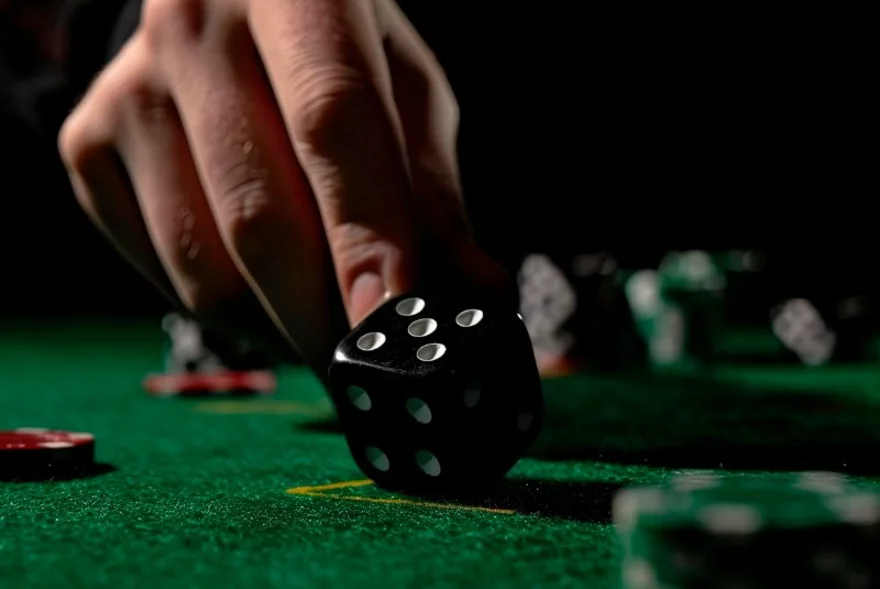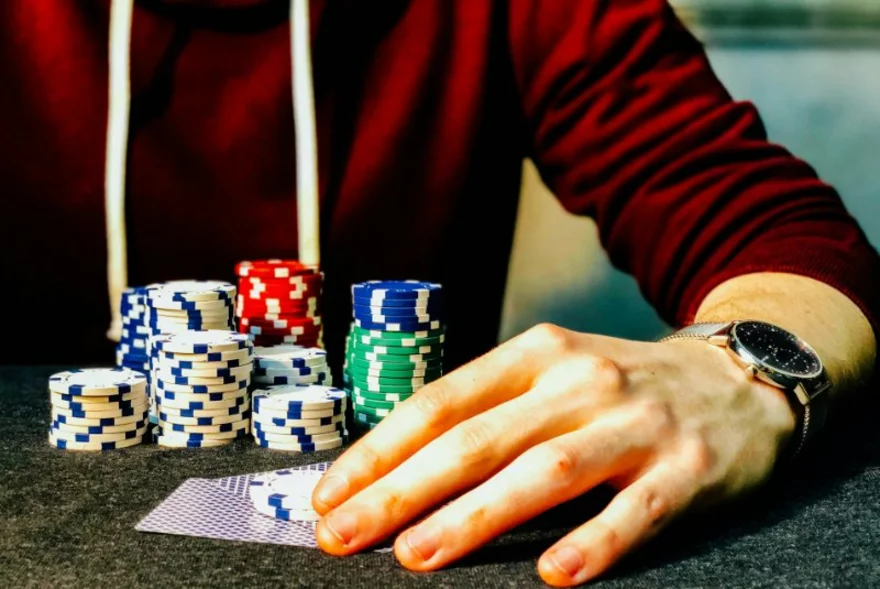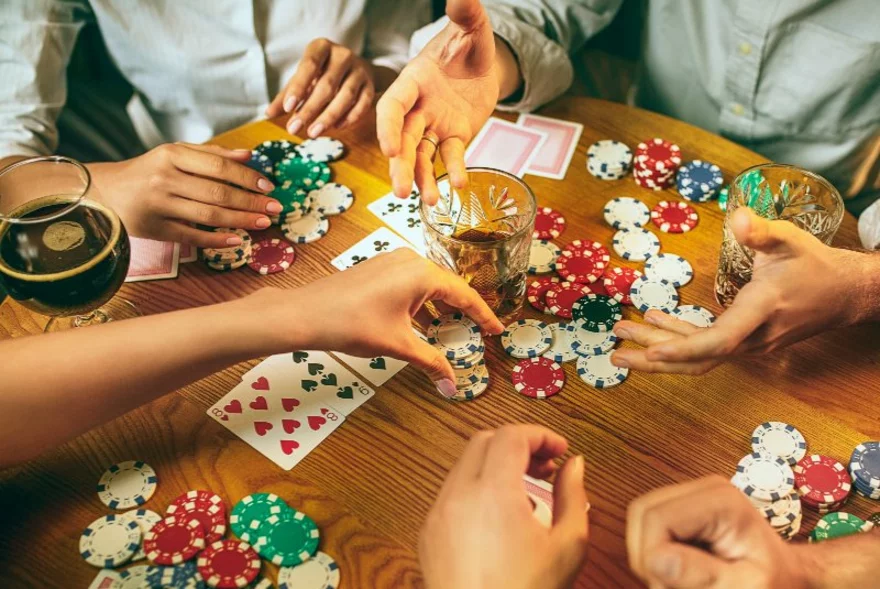Stages of gambling
Gambling, also known as pathological gambling, is an addiction that can develop very subtly and have devastating effects on the life of the gambler and those around them. Gambling can be fun to a certain extent for a special occasion, but if the occasional thrill of betting grows into an addiction that the player can no longer live without, the problem needs to be addressed. Pathological gamblers usually go through four phases of gambling, depending on how their gambling problem develops. These phases of gambling reveal warning signs of gambling addiction that can help you determine if you or someone close to you is gambling.The four stages of gambling1. The Winning StageThe winning phase is the part of gambling that many people are naturally attracted to. A problem in this initial phase usually comes with a big win, which leads to excitement and a positive outlook on gambling. The player gets a taste of what it is like to make quick and easy money.The player may get the feeling that he has a special talent for gambling and that the wins will continue. He or she will start to spend more time and money gambling, possibly taking out a loan, which he or she sees as an investment with a view to future winnings.Characteristics of the winning phaseOccasional gambling and more frequent wins.Gambling is a fun, social, exciting activity.The gambler gains a sense of personality.Imagines how he/she will spend the money won.May begin to see gambling as a way to solve financial problems.Amounts wagered and frequency of play increase.At some point, the player experiences a big win.Gambling offers emotional escape, excitement and a life on the edge. 2. Losing PhaseThe thrill of winning is followed by a series of losses that leave the player with an equally powerful experience. Addicted gamblers become increasingly focused on gambling, begin to gamble alone, borrow money, miss work, lie to family and friends, and default on debts. Most importantly, they try to make up for their losses.In the losing phase, a sufficient number of small wins can still feed the player's dreams and hopes of getting rich. During the losing phase, players may suddenly realise that they owe a lot of money because of their gambling and have invested a lot of money in gambling so that they cannot pay their bills. They try to make up for this by playing more. The gambler has the idea that if he devotes enough time and money to gambling, after a series of losses, he will jump back on the bandwagon of big wins that will make up for his losses. Family and close friends begin to notice at this stage that the money is disappearing. The hallmarks of the losing phaseA cycle of winning, losing and making up for losses begins.Losses are explained as bad luck with a "big win" just around the corner.No win is "not enough" and the stakes keep increasing - the player is trying to make up for the losses.Problems with paying bills and work ethic.Player hides his gambling activities and lies to cover up losing money.Tries unsuccessfully to reduce gambling or quit altogether.Player hides money and becomes more protective of it.Player becomes obsessed and plays to the last crown.He sells things and borrows money to finance his gambling.Gets angry when confronted with a gambling problem.Personality changes (player is more irritable, anxious and withdrawn).Private life becomes unhappy.Rescue activities from family and loved ones begin. Source.3. Despair phaseDespite expectations, a big win in a losing streak still does not appear and increasing financial loss leads to despair. Pathological gamblers lose all control and instead of learning lessons and limiting losses , they redouble their efforts to win. After playing, they feel ashamed and guilty, but they cannot stop.They see the only way out of the loss as a complete focus on gambling, which begins to affect the player's mental health. The addicted person begins to take out this constant stress on others. Arguments, false accusations and obsession are typical of the despair phase.There may even be a temptation to engage in illegal activities in order to make some quick money. The consequences of gambling addiction catch up with gamblers. They may lose their jobs, get divorced or be arrested.The hallmarks of the despair phaseObsession with gambling.Neglect of physical health.Inability to repay debts.Regret, panic and alienation from family and friends.Loss of reputation, friends, family, job and possessions.Tendency to commit illegal acts (embezzlement, theft, insurance or credit fraud.Relapse to previous addictions.Blaming others including friends, family, government, casinos, etc.More frequent thoughts of suicide. 4. Stage of despairDuring the previous phase of despair, even though it is a very difficult and serious phase, the player still retains some hope that things will turn around. But in the last phase of despair, gamblers reach a real bottom and it becomes clear to them that there is no easy and obvious way out of these problems.Debts have piled up, life savings are spent, and family and friends may have already cut themselves off from the chaos. Addicted players at this stage do not believe that anyone cares about them or that they can find help. They may turn to drugs and alcohol to numb their pain.Those who fall into the hopeless phase of gambling addiction are likely to find themselves all alone and may even consider suicide as the only escape from this tragedy.The hallmarks of the despair phaseRisk of possible arrest for illegal acts.Substance abuse and severe depression.Approaching an emotional breakdown.Marital problems may lead to divorce.Financial ruin.Suicide attempts. The four phases of gambling are depressive steps that lead to a near hopeless life situation, depression and despair. However, despite the darkness that gambling addiction brings, we can find light at the end of the tunnel. In the next section of this article, we will explore four steps to recovery from gambling addiction presented by Dr. Jeffrey Schwartz.If you or a loved one is in any stage of gambling addiction, don't hesitate to ask for help. You don't have to go it alone, check out gambling treatment options and where to seek help with gambling addiction. Four steps to recovery from gambling addictionDr. Jeffrey Schwartz, a noted expert on OCD (obsessive-compulsive disorder) and author of Brain Lock: Free Yourself from Obsessive-Compulsive Behavior, presents four steps that are not only effective for OCD, but can also be applied to recovery from gambling addiction. These steps are based on the principle of self-directed therapy, which uses the brain's ability to change through neuroplasticity. Here, these steps are discussed in more detail.Step 1: RelabelThis step requires you to realize and acknowledge that certain thoughts and behaviors are the result of addiction, and not actual needs or wants. In the context of gambling addiction, this means recognizing that the urge to gamble is not a legitimate want or need, but a symptom of addiction. This process helps to create a clear boundary between the real self and the addiction, allowing for better control over behaviour.Step 2: ReattributeThe second step involves questioning and reframing the origin of compulsive thoughts and behaviors. For gambling addiction, this means understanding that the strong urge to gamble is caused by chemical and neuronal changes in the brain that have been triggered by repeated gambling behaviour. By recognizing that these feelings and behaviors are caused by the addiction and not by your actual will or personality, you can begin to change your reactions to these compulsions.Step 3: RefocusThe third step is about learning to redirect your attention and energy to another, healthier activity when the urge to gamble arises. Instead of giving in to the urge, choose an activity that is rewarding and fulfilling for you and commit to it. This can be anything from physical activity, to hobbies, to spending time with family or friends. The key is to find something that takes your mind off gambling and gives you a sense of satisfaction or achievement.Step 4: RevalueThe last step involves a deep reevaluation and change in how you perceive compulsive thoughts and behaviors associated with gambling. It is a process of realizing that these thoughts and behaviors are not important and have no real value to your life goals and well-being. By reevaluating and devaluing these compulsive thoughts and behaviors, you can reduce their influence on your decision-making and behavior.These four steps are designed to provide a structured approach to recovery that harnesses the power of self-reflection and self-control. It is important to remember that recovery from addiction is a process that takes time, patience, and often support from therapists and support groups. These steps are not a quick fix, but they can provide a valuable framework for working to overcome gambling addiction. Article ResourcesWhat Are the Phases of Gambling Addiction? I PsychCentral [online] [cited March 13, 2024]. Available from: https: //psychcentral.com/addictions/four-phases-and-steps-of-gambling-addiction Stages of Gambling Addiction I Heights Treatment [online]. [cited 2024 Mar 13]. Available from: https: //theheightstreatment.com/stages-of-gambling-addiction/ The Four Stages of Escape Gambling | Problem Gambling [online]. [cited 2024 Mar. 13]. Available from: https: //problemgambling.az.gov/signs/four-phases-gambling Common phases of problem gambling I Minnesota.gov [online]. [cited 2024 Mar 13]. Available from: https://mn.gov/dhs/people-we-serve/adults/services/gambling-problems/programs-services/phases-gambling.jsp










